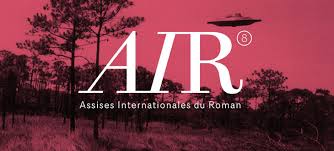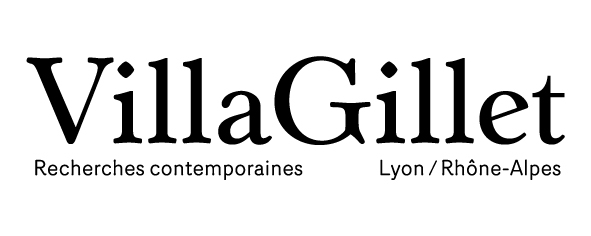Rachel Cusk: Love narratives
Born into an English family in Canada in 1967, Rachel Cusk spent part of her childhood in Los Angeles before she returned to England to finish school in Cambridge then study English literature at Oxford. In 1993 she published her first novel, Saving Agnès, for which she received the Whitebread first novel award. Her novels explore issues of family, life's transformations, and the ties that bind us to those who are dear to us.
Les éditions Christian Bourgois publieront prochainement un recueil en français des textes écrits à l'occasion des assises du roman.
If it’s true that we use narrative as a frame to make sense of the randomness of our human experience, then the story of romantic love might be seen as reflecting our profoundest anxieties about who and what we are, about what happens to us and why. The love narrative is ostensibly a story of progress, yet its true goal is to achieve an ending, a place of finality where nothing further needs to happen and the tension between fantasy and reality can cease. At the wedding of man and woman a veil is drawn, an ending arrived at: the reader closes the book, for marriage as it is lived represents the re-assertion of reality over narrative. Having committed this public act of participation and belief in the notion of life as a story, man and woman are left to order and confer meaning on their private experiences as best they can.
Ingmar Bergman’s film Scenes from a Marriage uses a discontinuous form to symbolise this fragmentation of the love narrative in marriage: as the title suggests, where romantic love was a ritualistic story that had a beginning and a (happy, public) end, marriage can only be represented in scenes, moments in which the private reality of life as a couple briefly surfaces and takes on a significant or explanatory shape. Yet crucially, in Bergman’s film, one of the scenes is that in which the couple decide to separate: their embroilment with one another doesn’t end with divorce, but merely continues with an exchanged set of values. Conflict replaces lovemaking, aggression replaces nurture, absence replaces presence, volatility replaces routine; yet the essential form of man and woman as participants remains.
The values of divorce are entirely negative, and as such it challenges - and often destroys - our sense of life as a narrative, a story, a meaningful progression toward some ultimate goal. The break-up of a relationship returns the participants to the cold daylight of an untransfigured reality, to a condition of unbelief we call depression, where they must wait for the green shoots of the next story - which we call hope - to appear. The only recompense for the old story breaking down is for a new one to begin: the period between these two events is a dark kind of intermission, an anti-story, of which little can be discerned or articulated. What is radical in Bergman’s vision is that these two realms - light and dark, story and silence, positive and negative, marriage and divorce - remain mingled. Catastrophe - divorce - thereby becomes part of the continuity of life. Only stories, Bergman suggests, begin and end; it is only there, in narrative, that dark and light are separated: reality - and artistic realism - can be identified by the inseparability of its opposites, by the absolute ambivalence of its outcomes.
So when we suffer the trauma of separation, is it as fantasists, as dismayed readers of the book of life, that we suffer? And how is it possible to represent this trauma truthfully without violating the laws of narrative that the events themselves - in all their inadmissible darkness - have already contravened? Writing is an act of creation that is allied with positivity: in narrative there needs to be hope, purpose, progress. But loss is anti-progressive; and if the break up of a relationship is two kinds of rupture - personal and public - there are also two different kinds of loss to grapple with. What might be lost at the personal level is the sense of reality itself: separation entails a breach with everything known and familiar, with one’s own history, possibly even with one’s concept of self. If experience is the interface between public and private - the process by which what is outside us creates and influences our internal landscape - the personal trauma of separation can put that process into reverse. The private self begins to dismantle the public persona: emotion manifests itself as negative change, as the breaking down of one’s outward habits of control. The newly divorced couple wants to talk to anyone who will listen, to turn loss into narrative, to create a story; but this is an anti-story, a narrative made from a subjective reality. The rules of representation have been sent into reverse: what we feel dictates what happens, rather than the other way around.
Is it possible to view, and hence to describe, the end of a relationship objectively? To make the self continuous with reality again, even in its deracinated, abandoned state? The concept of ‘scenes’ - moments in which the personal and the public act in accord, so that neither one is traduced - is one answer, and in fact reflects how separation is lived, the loss of the sense of a story of life with its burden of progress and hope. The end of one relationship might thus betoken the beginning of another: with reality in all its darkness and difficulty and beauty and joy, with truth itself.
Pour citer cette ressource :
Rachel Cusk, Rachel Cusk: Love narratives, La Clé des Langues [en ligne], Lyon, ENS de LYON/DGESCO (ISSN 2107-7029), août 2014. Consulté le 05/02/2026. URL: https://cle.ens-lyon.fr/anglais/litterature/entretiens-et-textes-inedits/rachel-cusk-love-narratives



 Activer le mode zen
Activer le mode zen![[title-image]1332154753622[/title-image] © Adrian Clarke](https://cle.ens-lyon.fr/anglais/images/cusk_1409212208150-jpg)


